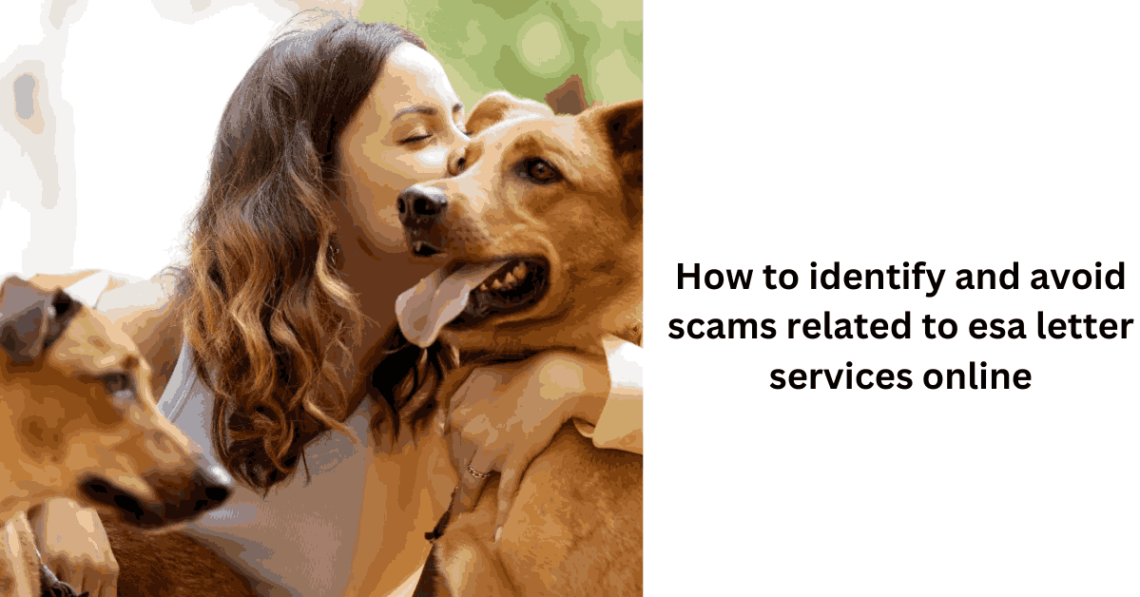
How to Identify and Avoid Scams Related to ESA Letter Services: Ensuring Legitimacy and Protecting Your Rights
Emotional Support Animals (ESAs) provide comfort and support to individuals with emotional and psychological challenges.
In recent years, the growing recognition of the therapeutic benefits of ESAs has led to an increase in the demand for ESA letters—official documents prescribed by licensed mental health professionals that certify the necessity of an ESA for their patient.
These letters are crucial for bypassing housing and air travel restrictions that typically prevent pets from accompanying their owners. However, with this demand comes the prevalence of scams designed to exploit those seeking legitimate ESA letters, offering false promises and invalid documentation.
Avoiding scams while securing a genuine ESA letter involves awareness and caution. It’s important to understand that legitimate ESA letters require an evaluation by a licensed mental health professional, and the acknowledgment that there is no such thing as an “ESA registration” can be critical in discerning authentic services from deceitful ones.
Additionally, looking for clear signals such as https://esapet.com/services/psd-letter with legal standards is an indication of credibility. By identifying red flags and understanding the proper channels to obtain an ESA letter, you can ensure that your rights as an ESA owner are protected according to federal and state laws.
Key Takeaways
● ESAs offer valuable emotional support, necessitating a verifiable ESA letter.
● True ESA letters come only from assessments by licensed mental health professionals.
● Identifying scams requires vigilance and understanding of ESA letter requirements.
Understanding ESA Letter Services
When seeking an Emotional Support Animal (ESA) letter, it’s essential to distinguish between legitimate and fraudulent services. Here’s what you need to know.
What Is an ESA Letter?
An ESA letter is a document that attests to your need for an Emotional Support Animal. This letter should be issued by a licensed mental health professional (LMHP) and typically outlines the nature of your mental health condition and how the presence of an ESA alleviates your symptoms.
Key Features of Legitimate ESA Services
Legitimate ESA services share certain features that ensure they are compliant with the law and ethical standards:
● Provider Credentials: The service connects you with a real LMHP eligible to write an ESA letter.
● Personal Assessment: You receive a thorough mental health evaluation to assess your need for an ESA.
● Follow-Up: Legitimate services may offer aftercare or follow-up consultations to support your ongoing mental health needs.
● Official Documentation: Your ESA letter will be on the professional’s official letterhead and include their license information.
Roles of Licensed Mental Health Professionals
LMHPs are central to the ESA letter process. Their responsibilities include:
● Conducting Evaluations: They assess whether you have a mental or emotional disability that qualifies for an ESA.
● Writing ESA Letters: Upon confirming your need, they write a personalized letter that meets legal standards.
● Verification: They may verify third parties if your ESA status is questioned and follow any required protocols for confirming the validity of your ESA letter.
Strategies to Identify and Avoid Scams
Navigating the process to obtain an Emotional Support Animal (ESA) letter can leave you vulnerable to scams. Equip yourself with the means to recognize deceitful practices and safeguard your details.
Recognizing Red Flags in ESA Services
Be wary of instant approval promises for ESA letters, as legitimate mental health professionals require a proper assessment. If a service offers a lifetime certification, know that ESA letters need annual renewal. Ensure the provider explicitly states they work with licensed mental health professionals.
Verifying Service Credentials
Always check the credentials of the ESA letter provider. This can include verifying whether the mental health professionals are licensed in your state. Look for clear and accessible contact information on their website and whether they have a professional office location.
Protecting Personal Information
When engaging with ESA services, be cautious about sharing personal information. Only provide necessary details after you have confirmed the legitimacy of the service. Secure websites typically have an ‘https’ in the URL and display a padlock icon near the address bar.
Reporting Suspected Scams
If you encounter a potential scam, report it to the Federal Trade Commission or your state consumer protection office. Keep records of all communications, as they can be crucial when reporting a scam. Remember that reporting not only helps you, but also aids in preventing others from being victimized.
Conclusion
To safeguard yourself from counterfeit ESA letters, be vigilant and scrutinize the credentials and processes offered by ESA letter providers. Ensure that the professional issuing the letter is licensed and the document is personalized to reflect your specific needs.
Remember, registering an ESA is not a legal requirement. Stay informed about proper documentation and avoid the pitfalls of scams to protect your rights and the integrity of legitimate ESA letters.
By taking these steps, you can confidently navigate the process of obtaining an ESA letter that is both compliant with the law and supportive of your mental health needs.
You May Also Like

Exploring the Benefits of BCPS Schoology: Empowering Education in the Digital Age
August 15, 2023
Unveiling the Marvel of Soymamicoco: A Nutritional Wonder
October 10, 2023

